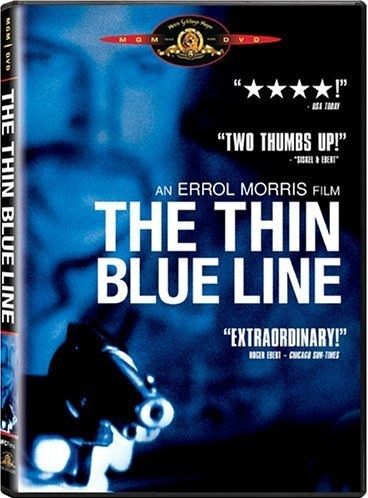| |
 |
Title: The Thin Blue Line
| Genre: Documentary, Crime, Mystery |
Year: 1988 |
Country: USA |
Rating:  |
Starring: Randall Adams, David Harris, Gus Rose, Jackie Johnson, Marshall Touchton
|
Director: Errol Morris
|
My Review: A documentary, made in 1988, about the case of Randall Adams - Convicted of murder (in 1976), and sentenced to death under Texas law. The documentary exams the discrepancies of the case, the questionable character of the key witnesses, and the justice of the verdict. The victim; a Dallas police officer, was shot dead in cold blood during a late night traffic stop. The murderer drove away while the cops partner stood by and watched it happen. The film contains first person interviews, skillful reenactments, and a thorough investigation of the facts of this deadly case. The film itself revealed the deep discrepancies, questionable testimony, and flawed prosecution so thoroughly that the Texas Court of Criminal Appeals overturned Adams' conviction. After the Dallas County district attorney failed to prosecute the case, Adams was ordered released as a result of a habeas corpus hearing in 1989. Adams spent 13 years in prison for a crime he didn't commit. The Thin Blue Line may separate society from anarchy, but what happens when the law steps over that line? Excellent production, clinical execution, outstanding music (by Phillip Glass) and superb direction. I give this a 4 out of 5.
Summary: Errol Morris's unique documentary dramatically re-enacts the crime scene and investigation of a police officer's murder in Dallas. Briefly, a drifter (Randall Adams) ran out of gas in Texas and was picked up by a 16-year-old runaway (David Harris). Later that night, they drank some beer, smoked some marijuana, and went to the movies. Then, their stories diverge. Adams claims that he left for his motel, where he was staying with his brother, and went to sleep. Harris, however, says that they were stopped by police late that night and Adams suddenly shot the officer approaching their car. The film shows the audience the evidence gathered by the police, who were under extreme pressure to clear the case. It strongly makes a point that the circumstantial evidence was very flimsy. In fact, it becomes apparent that Harris was a much more likely suspect and was in the middle of a 'crime spree,' eventually ending up on Death Row himself for the later commission of other crimes...
|
|